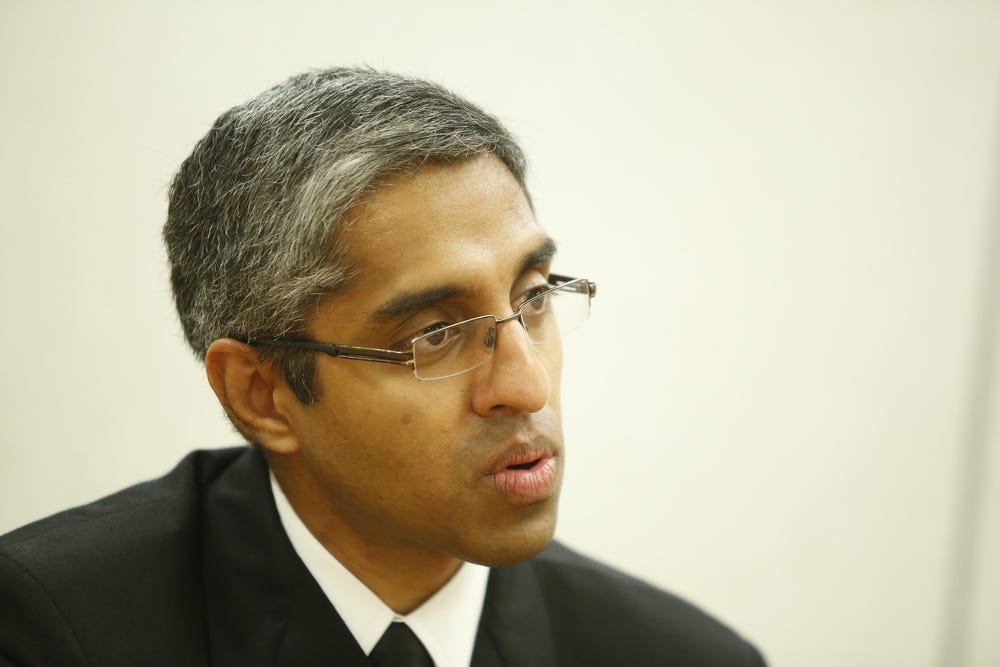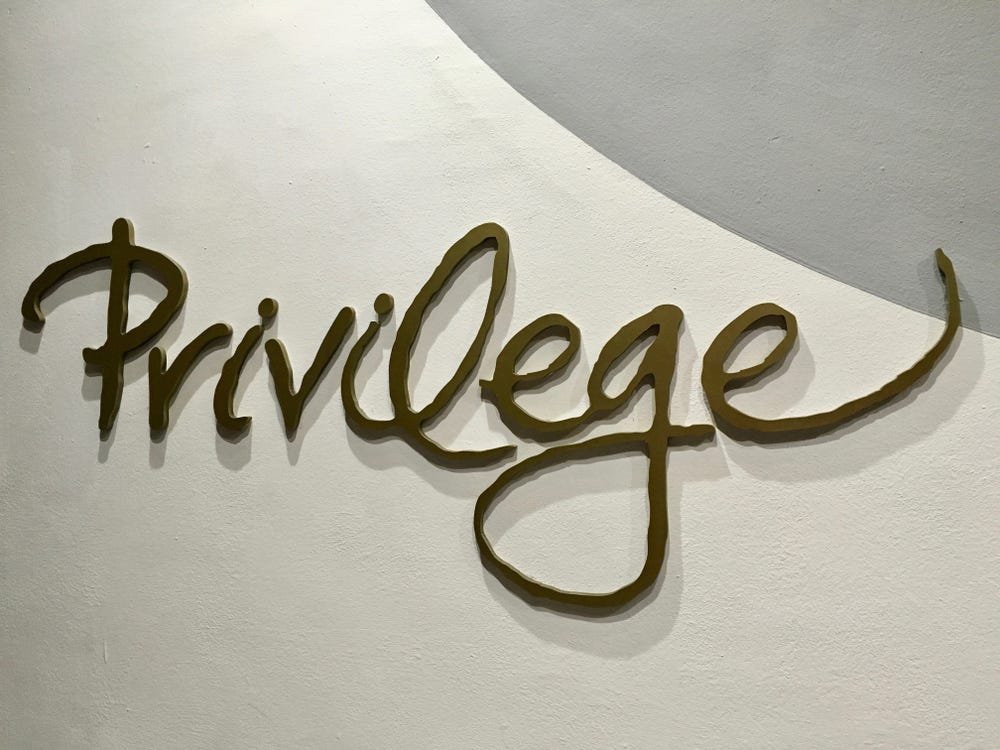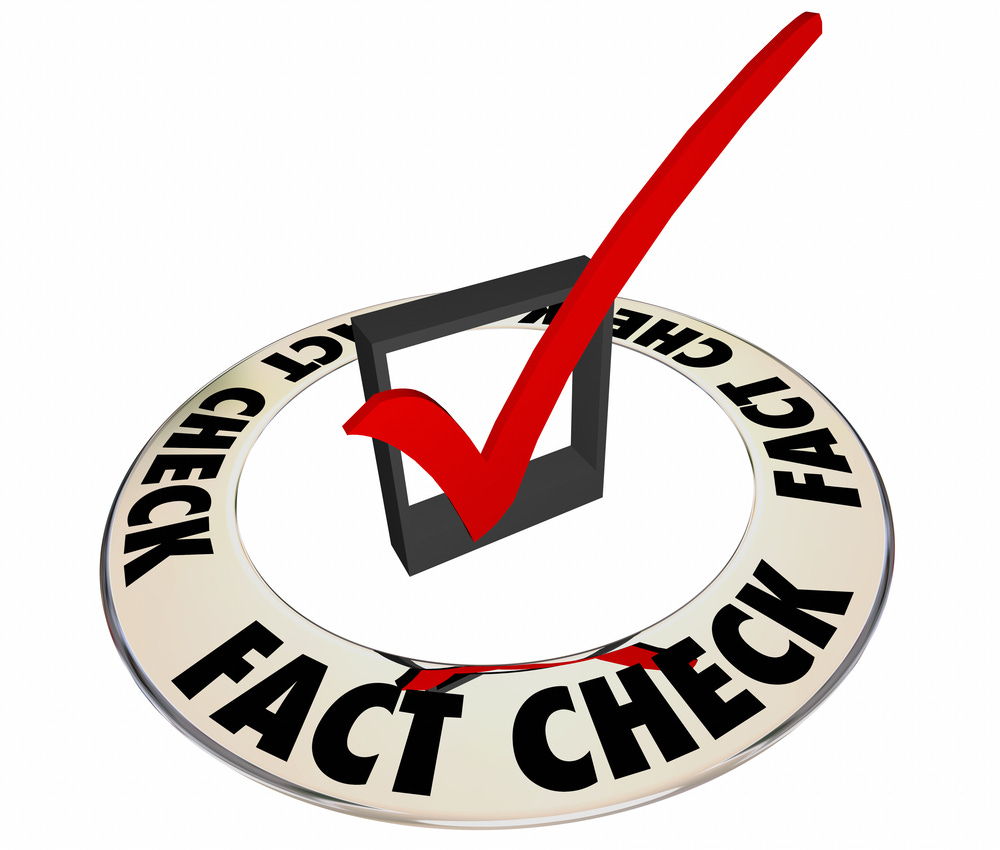E-Pluribus | March 9, 2022
Should the government be defining 'misinformation', the privilege of receiving criticism, and fact checking fact-checking.
A round up of the latest and best writing and musings on the rise of illiberalism in the public discourse:
Jacob Sullum: Vivek Murthy's Demand for Data on COVID 'Misinformation' Is Part of a Creepy Crusade to Suppress Dissent
This week, Surgeon General Vivek Murthy issued a formal Request for Information on the sources of “misinformation” during the COVID-19 pandemic as well as its dissemination. While the request is technically from the public at large, technology and social media platforms are clearly singled out to share vast amounts of data to aid Murthy and the government in its investigation. Jacob Sullum of Reason finds Murthy’s request “creepy” and, intentionally or not, a way for the government to suppress dissent.
"Defining 'misinformation' is a challenging task, and any definition has limitations," Murthy concedes in his advisory. "One key issue is whether there can be an objective benchmark for whether something qualifies as misinformation. Some researchers argue that for something to be considered misinformation, it has to go against 'scientific consensus.' Others consider misinformation to be information that is contrary to the 'best available evidence.' Both approaches recognize that what counts as misinformation can change over time with new evidence and scientific consensus. This Advisory prefers the 'best available evidence' benchmark since claims can be highly misleading and harmful even if the science on an issue isn't yet settled."
If you say something that goes against the "best available evidence" as determined by government officials, in other words, you are spreading "misinformation," which poses such a grave threat that all rational Americans should be united in opposing it. What does that mean in practice?
[ . . . ]
The notion that dissent from the official line on public health issues should be treated as an "urgent threat" to be addressed by a "whole-of-society" crusade, possibly including "legal and regulatory measures," is fundamentally illiberal and inconsistent with freedom of speech. White House Press Secretary Jen Psaki describes the administration's demands for suppression of "misinformation" as "asks." But that characterization is risible given the power that the executive branch wields over the companies whose "cooperation" it is seeking. Censorship by proxy is still censorship.
Read it all.
Howard Husock: Honest Criticism Is a Privilege
Diversity, equity, and inclusion as well as affirmative action have been touted as ways to right past wrongs for groups that have historically faced discrimination and level the playing field. Howard Husock at City Journal contends that, whatever the good intentions, such measures can harm those they purport to help by muddying the waters on achievement and accountability.
So far, imposter-syndrome literature does not deal directly with affirmative action and diversity, equity, and inclusion (DEI)—but it should, especially in light of the nomination of a black woman to the Supreme Court, whose qualifications, as President Biden stressed, included her racial identity, and as the Court itself prepares to hear arguments related to racial factors as a consideration in Harvard admissions. The basic injustice of affirmative action—assessing individuals by their race, rather than by their own merits—remains the most objectionable aspect of the policy. But for those who argue nonetheless that affirmative action has benefited blacks, the imposter syndrome undercuts that rationale, too.
As racial awareness now extends deeply into public and private life, this is no longer an abstract question. No company is free of pressure to demonstrate its commitment to DEI. Amazon, for one, boasts that it tracks such data—obviously not to demonstrate that it falls short. No university search for faculty fails to consider race and gender. The Small Business Administration’s set-aside program for potential recipients of federal contracts who are “socially disadvantaged” explicitly includes blacks. A recent paper released by the San Francisco Federal Reserve Bank proposes making the Community Reinvestment Act clearly aimed at race-based lending, and New York officials recently proposed prioritizing minority communities for certain Covid-19 treatments.
Imposter-syndrome literature suggests, however, that on top of its basic unfairness affirmative action causes collateral damage for African-Americans, in the sense that it can foster feelings of being undeserving because of being hired, admitted, or steered to a particular type of position for reasons other than one’s true qualifications. Worse still, the DEI matrix does not provide the means to conquer imposter syndrome. Those who must work to prove themselves, at the risk of failure and firing, wind up benefiting either way—they either learn what they need to learn to perform effectively, or, by failing, they learn what their limitations are. Those whose successes are not based on performance are denied such opportunities. The couple whose mortgage is approved because of their race will lose the satisfaction of having done what it takes to maintain a qualifying credit score. The small business owner who receives a set-aside federal contract is robbed of knowing that the quality of his product or service carried the day.
Read the whole thing.
Martin Gurri: The Fifth Wave: Who Fact-Checks the Fact-Checkers?
When it comes to fact-checking, Martin Gurri at Discourse Magazine says the fact is that fact-checking is less about facts and more about whose facts are being checked and who is checking them. The post-modern aversion to self-evident truth had led to a faulty process to produce “facts,” and without a basic agreement on what constitutes facts, “checking” them often devolves into just another opinion.
We can see that the obsession of Facebook and Twitter with fact-checking was based on the usual misunderstanding of the scientific method. They considered facts to be neutral and inert, simple to prove or disprove without much ideological fuss. Unfortunately, that only works if all of us agree on the framework of truth that integrates the facts—and it is precisely the disintegration of these frameworks in the digital age that triggered the epistemic crisis. In every domain, the ruling paradigms have lost their hold—but there has been no paradigm shift, only noise and struggle.
Given the lack of a framework, the answer to, “Who decides?” could only be partial and arbitrary. The public could decide, either directly, by the facts it valued, or in some algorithmic form. That would spin democratic society into a massive transactional churn, in which the truth of any proposition would go up or down unpredictably like the stock market. Whether such an arrangement would end in anything other than anarchy is an interesting question.
[ . . . ]
Maybe teams of conservatives should fact-check the liberal media checkers—and libertarians would then fact-check the conservatives—and Marxists would do the same to the libertarians—and so on in an infinite regress until everyone on earth is checking the truth of what everyone else has posted online. I know certain denizens of the web who have already ascended to this ideal existence.
Even in such a fact-checking utopia, nothing would change. The quarrel today is not over facts but over the process that produces facts. The failure to agree occurs, and will continue to occur, because there’s no framework of agreement. Until one is found that can survive the rigors of the digital storm, the elite panic will only intensify.
Read it all here.
Around Twitter
FIRE is under fire, and Sarah McLaughlin and Greg Lukianoff return fire:
Jonathan Chait, David French and Glenn Greenwald chime in as well:
Conor Friedersdorf with some observations on campus free speech:
And finally, renaming “the G moth”:










